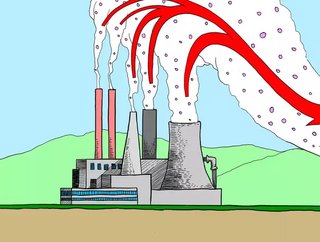Consortium to research technology solutions for CCUS

Aker Solutions, Siemens Energy and Doosan Babcock will aim to draw on more than 450 years' experience to develop technology and solutions for the UK Carbon Capture, Utilisation and Storage (CCUS) market.
The trio have formed a consortium to drive solutions that enable customers to achieve their decarbonisation goals.
They will strive to provide both the solutions and facilities that will enable these goals, and contribute to developing new sustainable industrial opportunities, jobs and value creation.
Together, the companies employ more than 6,500 people across the UK and offer established and proven combined cycle gas turbine (CCGT) engineering and design as well as extensive UK-based engineering, fabrication and construction services.
Aker Solutions has worked on CO2 treatment solutions since the 1990s and has extensive experience of delivering end-to-end solutions for large complex projects across Europe. The company will assume the role of project integrator in the newly formed consortium.
The consortium is working in close collaboration with Aker Carbon Capture which provides high efficiency CO2 capture technology with low solvent degradation and low emissions.
"CCUS is integral to the UK's net zero commitments, and the formation of this consortium further demonstrates our commitment to ensuring much needed technologies reach commercial scale," said Stephen Bull, Executive Vice President and Head of Aker Solutions' renewables business.
"Just as the transition to net zero isn't going to be solved by one technology alone, the development of advanced solutions will require the strength of more than one company.
"Collaboration with other organisations and industries to draw on each other's capabilities, knowledge and experience is going to be vital to reach net zero by 2050. Joining forces with Siemens Energy and Doosan Babcock creates a strategic platform for us to combine our strengths and work together to offer best in class capability, choice and local UK delivery," said Bull.
Siemens Energy, a leading energy technology company focused on driving decarbonisation, offers an established UK track record in the delivery of CCGT power plants and strong operations and maintenance capabilities.
Steve Scrimshaw, Vice President, Siemens Energy UK&I, said the energy transition should be a "just transition" and the challenge of meeting net zero is one which will need all companies using their strengths to quickly bring forward new technologies and ideas.
"With this partnership we can do just that. I'm delighted that Siemens Energy, Aker Solutions and Doosan Babcock are collaborating to provide customers and partners with their expertise, skills and established supply chains, honed over many years working in the UK."
As a part of the global Doosan group, Doosan Babcock is an engineering and construction company with a rich heritage in the construction, rehabilitation and retrofit of power plants, as well as experience in the refining, petrochemical and pharmaceutical industries.
Andrew Colquhoun, CEO of Doosan Babcock, said the consortium combines three companies with a rich UK heritage, that are committed to meeting the UK Government's Net Zero aspirations.
"The planned investment in CCUS will result in significant investment into communities in Scotland, the North East of England and Wales. As a consortium with a large UK workforce we support the government's aims for a green recovery and aim to 'level up' by safeguarding and creating many high-skilled jobs in these communities."
Earlier this year, Aker Solutions formed a consortium with Siemens Energy to deliver HVDC (high-voltage, direct current) converter stations for ScottishPower Renewables' East Anglia THREE offshore wind project in the UK. Aker Solutions also partnered with Doosan Babcock in March 2021 to jointly deliver projects for low-carbon solutions and renewable energy in the UK.
There have been warnings that CCUS projects are 'a drop in the ocean' compared with global CO2 emissions, according to an IDXTech Ex report (click here).
Plans for more than 30 new CCUS facilities have been announced since 2017 and even if all these projects proceed, global capture capacity would triple to around 130-140 million tonnes per year - while global CO2 emissions topped 36 billion tonnes in 2019. A common challenge facing all aspects of the industry is that of economics, the report states.
McKinsey states that in the short to medium term, CCUS could continue to struggle unless three important conditions are met: capture costs fall; regulatory frameworks provide incentives to account for CCUS costs; and technology and innovation make CO2 a valuable feedstock for existing or new products.
"To make the economics work and to encourage further technological innovation, incentives and supportive regulatory frameworks will be necessary," it concludes.
"If they come, CCUS can help support the transition to a low-carbon economy. Without CCUS, the transition would become much more challenging - because every scenario to stabilise the climate depends on investment in negative-emissions technologies."






